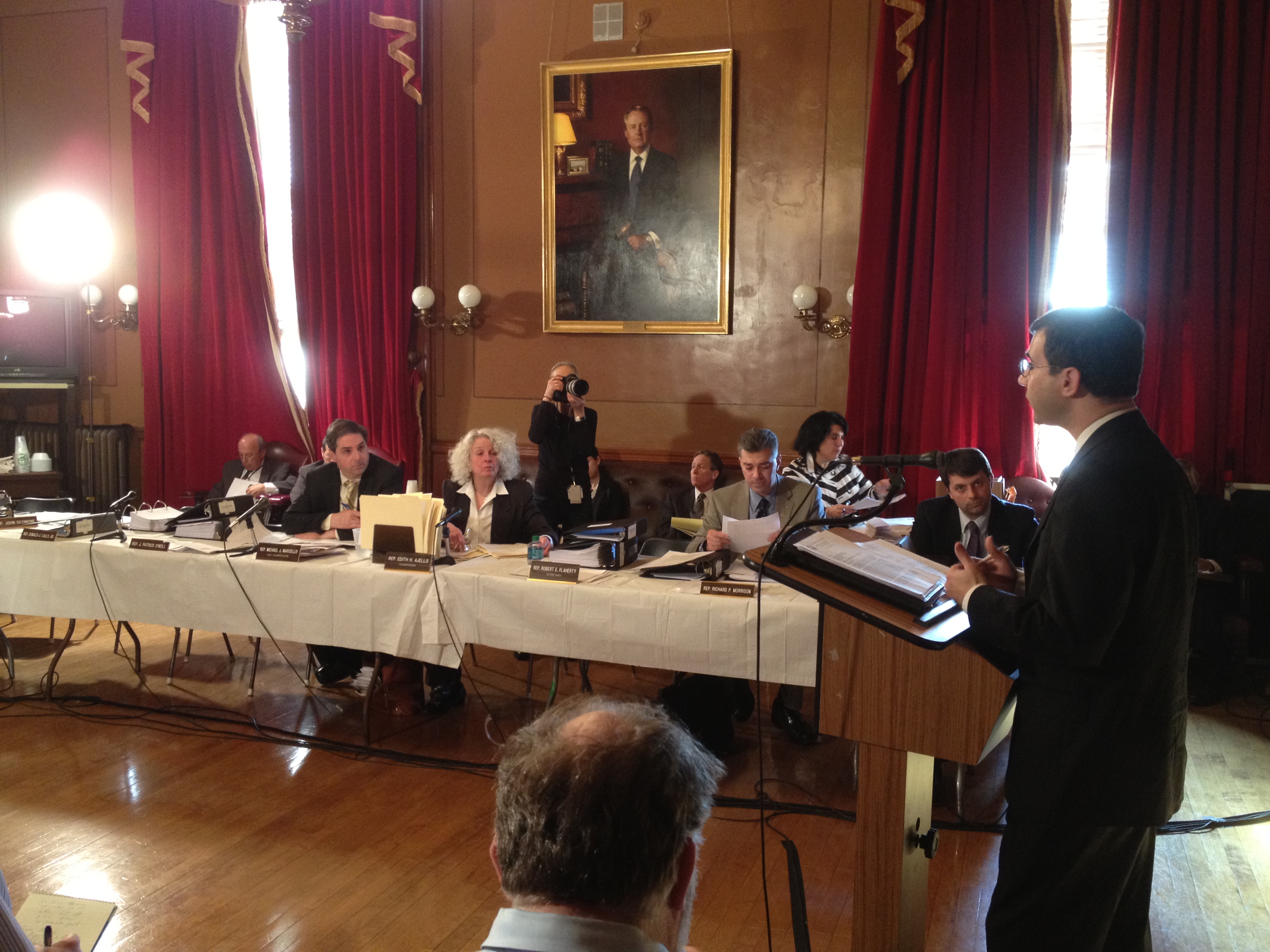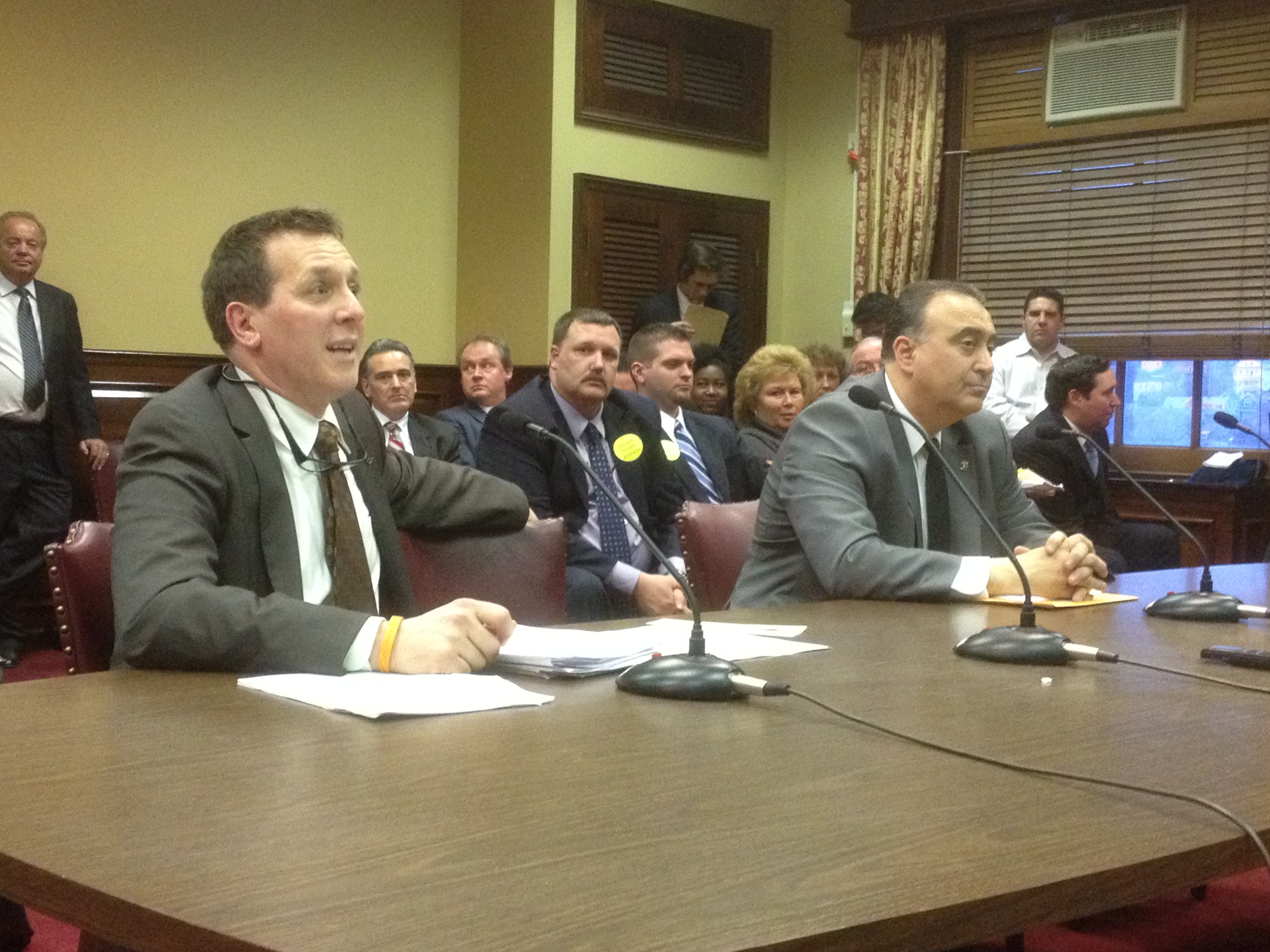Paula Hodges curates the local news, and provides links to all the recent stories relevant to Rhode Island progressives, so you don’t have to…
Hinckley retracts criticism of Whitehouse bill
By JOHN E. MULLIGAN JOURNAL WASHINGTON BUREAU
WASHINGTON — After charging that a tax proposal by U.S. Sen. Sheldon White-house would force municipalities to raise local property taxes, the Hinckley Senate campaign acknowledged Monday that its critique had been based on a misunderstanding of the Rhode Island Democrat’s legislation.
Benjamin “Barry” Hinckley III, the Republican candidate challenging White-house, asserted in a news release that the Whitehouse version of the so-called “Buffett rule” — imposing a minimum tax on those who make more than $1 million a year — would reduce the incentive for rich people to invest in tax-free municipal bonds.
Hinckley’s argument was that this would weaken demand for the bonds, which would in turn reduce the ability of cities and towns to raise money –– thus forcing them to raise local property taxes.
RI is 10th among least religious states, but most devout in NE
Ted Nesi, Nesi’s Notes, WPRI 12
Rhode Island is one of the least religious states in the country, but its residents are still more devout than those of any other New England state, according to a new Gallup survey.
The poll shows 32% of Rhode Islanders are “very religious,” tied with New York as the 10th-least religious state in the nation.
Rob Horowitz: The Politics Rule Out Single-Payer Heath Care System
Rob Horowitz, GoLocalProv
Last week’s oral arguments over the constitutionality of “Obamacare” and the prospect of the Supreme Court ruling that the law’s individual mandate requiring citizens to purchase health insurance is unconstitutional has reignited dormant longings by liberals for the adoption of a single-payer national health care system.
Liberal Washington Post columnist Eugene Robinson wrote, “If the Supreme strikes down Obamacare, a single-payer system will go from being politically impossible to being in the long-run fiscally inevitable.” Robinson’s thoughts were echoed by a number of other liberal columnists and by commentators on liberal-leaning MSNBC.
Unfortunately, no matter how strong the substantive case may be for a single-payer health care system, the politics still preclude it. Even with large Democratic majorities in the House and Senate, Obamacare was difficult to pass despite the fact that the bill was supported by the American Medical Association(AMA) and the insurance industry was in neutral. Today, these powerful interests would launch an all-out campaign against any effort to adopt a single-payer, government-run heath care system
Romney problem: women voters
Scott MacKay, RINPR
As the race for the Republican presidential nomination has unspooled, front-runner Mitt Romney has developed a problem that could be fatal if it persists into the autumn campaign: women voters.
That is the message of a new public opinion survey conducted in 12 swing states by USA Today and Gallup and reported in the Washington Post by the Morning Fix’s Chris Cilliza.
The poll shows that in 12 states, Colorado, Florida, Iowa, Michigan, Nevada, New Hampshire, New Mexico, North Carolina, Ohio, Virginia, Pennsylvania, and Wisconsin that President Obama leads the former Massachusetts governor by 51 to 42 percent.
A month ago, Romney held a two percentage point lead in these same dozen states.
RI schools to stop buying meat with “pink slime”
By MEGAN HALL, RINPR
Rhode Island’s schools won’t be serving lean, finely textured beef much longer. The school districts have decided to remove what’s known as “pink slime” from the menu.
Disgust with meat trimmings sterilized with ammonia has reached Rhode Island. The beef additive has been a component of the meat we eat for more than ten years, but media reports, concerned consumers and a disgusting nickname have focused new attention on the so called pink slime.
The Rhode Island Department of Corrections is in charge of distributing food to schools across the state. The Department’s Patricia Coyne-Fague says school districts now have the option of ordering beef without the additive.
‘You think you got pension problems now…’
Edward Fitzpatrick, Providence Journal Column
It’s midnight in Barrington. Do you know where your state legislator is?
No, of course, you don’t. You’ve got a job, children, a life to lead. But you might have heard that shortly after midnight on Wednesday, the Barrington police pulled over Senate Majority Leader Dominick J. Ruggerio, D-North Providence, charging him with drunken driving and refusing a breath test. The police say another member of the Senate leadership, Frank A. Ciccone III, D-Providence, made a cameo at the scene, threatening police officers with legislative retribution and trying to pull strings to get Ruggerio off the hook.
The issue in R.I. is much bigger than just one senator
EDWARD ACHORN, Providence Journal Column
It was sad to learn that Rhode Island Senate Majority Leader Dominic Ruggerio (D.-North Providence) had been arrested for driving under the influence in Barrington early last Wednesday morning. We are all human, prone to making mistakes that we greatly regret, and we all deserve some sympathy when we stumble.
But it is sadder still to see the initial response by the powerful in Rhode Island, particularly Senate President Teresa Paiva Weed. She expressed no concern for the safety of the public — including our loved ones who must share the road with dangerous drivers. She conveyed no sense at all that driving drunk is a reasonably weighty offense and behavior unworthy of someone in one of the state’s highest offices.
When former House Minority Leader Robert Watson was arrested on charges of driving under the influence and possessing marijuana, Republicans — properly, I thought — removed him from his leadership position and expressed the hope that their troubled colleague would turn his life around. The party that dominates Rhode Island, the Democrats, demonstrated lower standards last week.
Doherty will keep $1,000 from Sen. Ciccone despite allegations
Ted Nesi, Nesi’s Notes, WPRI 12
Former State Police Col. Brendan Doherty says he’s keeping $1,000 donated to his congressional campaign by state Sen. Frank Ciccone, despite an allegation by police in Barrington that the lawmaker threatened them while they were arresting Senate Majority Leader Dominick Ruggerio.
“It is our understanding that Senator Ciccone has apologized for any comments that may have been viewed as improper,” Giovanni Cicione, Doherty’s campaign manager, told WPRI.com in an email. “For now we see no reason to take any action.”
Chafee strategizes with local leaders, Governor urges officials from towns and cities to persuade lawmakers to approve his proposals
By RANDAL EDGAR and PHILIP MARCELO JOURNAL STATE HOUSE BUREAU
PROVIDENCE — When he met with local leaders in January, the goal was to figure out what the state can do to help cities and towns shore up their finances.
On Monday, as Governor Chafee held a second meeting with mayors and managers from across the state, the focus was not on what, but how.
Specifically: how do you get a sweeping and controversial package of bills — including some ideas that have failed in the past — through the General Assembly? The answer, voiced with varying degrees of urgency by Chafee and the local leaders after the 50-minute session, boiled down to this: mayors and managers need to be contacting their local lawmakers.
Americans in denial
Providence Journal Editorial
Why is anti-government fervor so extreme in those parts of America, mostly in the South and Southwest, that receive the greatest per-capita amount of federal help in relation to personal income and have the highest incidence of such social problems as illegitimacy and substance abuse?
We’re talking about Food Stamps, Medicare, Medicaid and other basic federal support systems. Is this just staggering hypocrisy by folks who admire, say, lobbyist and social-conservative presidential candidate Rick Santorum — a self-proclaimed man of the people who earns $1 million a year?
Unemployment, poverty, threaten child welfare
By FLO JONIC, RINPR
Kids Count has released its 18th annual report on the well being of Rhode Island’s children.
Rhode Island is losing children. The Kids Count fact book shows the number of children in Rhode Island has fallen 10 percent over the last decade, or a loss about 24,000 kids.
Kids Count director Elizabeth Burke Bryant says Rhode Island is one of only three states to have lost ten percent or more of its children.
Council passes special tax levy, 13.8-percent supplemental tax is expected to bring $4.3 million and prevent state intervention
By JOHN HILL JOURNAL STAFF WRITER
WOONSOCKET — The City Council voted 6 to 1 Monday night to approve a 13.8-percent supplemental tax levy in an effort to find enough money to keep the school system open through the end of the school year.
Only Councilman Roger Jalette voted against the measure, saying he thought a municipal bankruptcy was the only sure cure for the city’s $10 million school deficit.
But the other six council members said that while they thought the special tax was a bad choice, going into receivership would even be worse.













